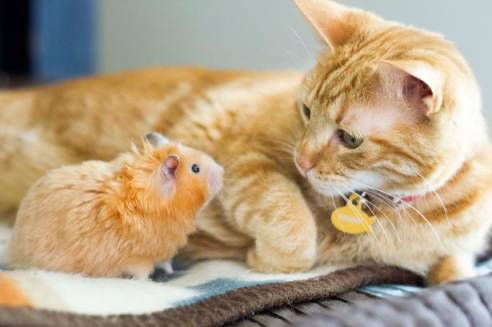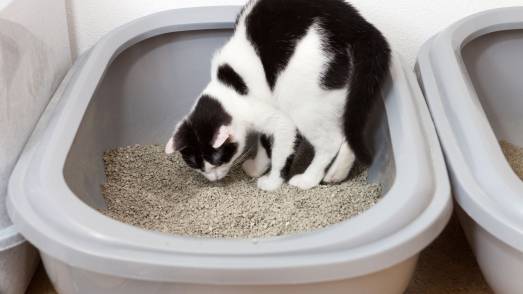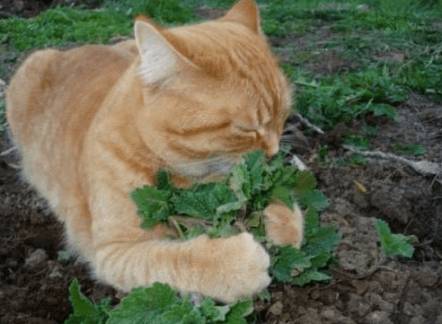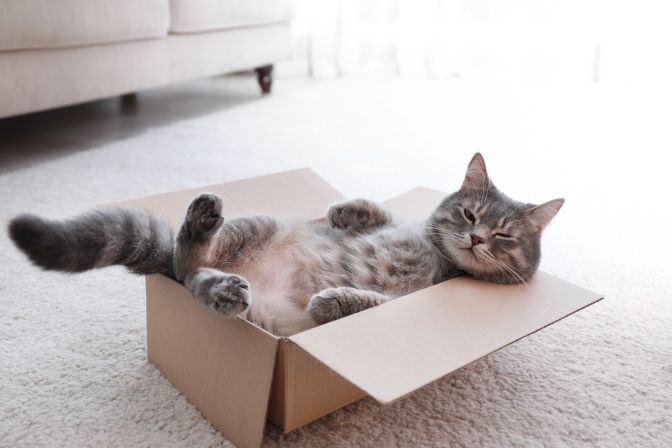Connect with a verified veterinarian in minutes. Licensed vets are available 24/7 to answer your questions. No need to worry about your furry family member.
Has your cat eaten a hamster? Are you worried the hamster could make your cat sick? If so, you’ve come to the right place. We’re sorry to hear what’s happened and are here to provide you with more information in this article on what to do next.
What is a Hamster?
Hamsters are small, cute rodents that are commonly kept as pets. They have short tails (may look more like a stub), short legs, and small ears. They come in many different varieties, as well as different colors.
These little guys can be found in Syria, Greece, Belgium, Romania, the Czech Republic (though these are larger and not domesticated), as well as in China. Hamsters were first brought to the US in 1936, where they were used for scientific study. Eventually, hamsters also became cute small, exotic pets.
Hamsters are nocturnal, which means they’re more active during the night. They also tend to live alone unless a female hamster mates with a male. The male will then leave, and the female rears her young alone. When they’re old enough, the baby hamsters will leave their mother and find their own place to live.
Hamsters & Cats
Many people keep both hamsters and cats, as well as other pets, in the same home. There are precautions that should be taken, though. The reason is that cats have a strong prey drive, especially for small rodents. In the wild, cats hunt and eat small rodents such as mice, rats, and more. Even domesticated cats keep this tendency to hunt small rodents.
Occasionally, a cat may try to get a hamster from its cage. Some cages have doors that are easy to open, which a cat may be able to manage. Other times, the hamster may find a way to escape and then run free in the house.
When the cat sees the hamster running free, she can’t help herself. She will hunt and chase the hamster. Not all cats will eat the hamster, though many will try.
This is a very sad circumstance for pet parents. However, accidents happen, and cats will chase small rodents. They can’t help it—it’s a natural instinct they still carry.

Review symptoms, medications & behavior to keep your pets healthy with a Vet Online in just minutes.
Ask a Vet Live NowWill the Hamster Make the Cat Sick?
Because cats in the wild normally eat small rodents, your kitty probably will be OK. However, she may experience some nausea, vomiting, and diarrhea. These should pass; however, if these symptoms last longer than 24 hours, then it’s time to call the vet. The bones of the hamster may protrude into internal organs and cause trauma if they haven’t been digested fully, so monitor your cat closely for any signs of discomfort. And do call the vet if you’re worried or your kitty develops other concerning symptoms. Your vet will have the best information on how to proceed in this type of situation.
Connect with a verified veterinarian in minutes. Licensed vets are available 24/7 to answer your questions. No need to worry about your furry family member.

Emma Chandley, BVetMed MRCVS PGCertSAS
This article has been reviewed and approved by an independent Veterinarian: Emma graduated from the Royal Vet College in London in 2011. She has a keen interest in surgery and went on to do a post graduate certificate in small animal surgery and was then awarded advanced practitioner status in the same discipline.
Review symptoms, medications & behavior to keep your pets healthy with a Vet Online in just minutes.
Ask a Vet Live Now





